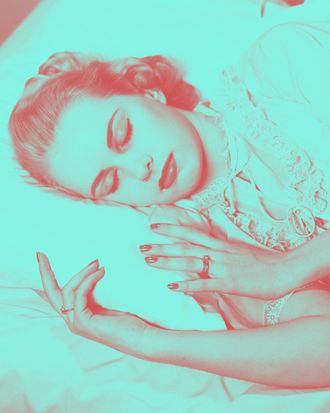
In a … calming piece for Psychology Today detailing five of the ways that sleep loss affects cognitive ability, sleep doctor Michael J. Breus, Ph.D., saves the saddest one for last: “You’re less creative.” The other four: without enough sleep, it’s harder to react quickly, store memories, pay attention, and make good decisions. (On the other hand, being freed from those things sounds kind of … well, I was going to say it sounds kind of spectral and relaxed, although it mostly does just sound bad.)
There’s a complicated relationship between sleep and creativity, though, since many of our weirdest and most brilliant ideas emerge in the fog of grogginess — often right before bed and right after we wake up. “When we’re distracted, unfocused, and fatigued,” Breus writes — “just when our other cognitive abilities are struggling, creativity perks up.” He calls these our “moments of groggy greatness.” It would stand to reason, then, that sleep deprivation could in theory unleash some kind of extreme creativity, although it is apparently not so.
Moments of groggy greatness (let’s call them MoGGs) apparently feed on accumulated REM sleep, as the mind digs deeper into stranger and more vivid dreams. REM peaks during the final third of a night’s sleep, Breus writes, and “if you shortchange your sleep time, you risk missing out on the creativity-boosting effects of REM.”
I’d get up on my little soap box here and mention how much better my own sleep got after I stopped drinking, although there was definitely also a sweaty and wide-awake adjustment phase, too (two-ish days). But, it’s been pretty crazy, just saying.
To end on a high note, as Breus writes: “We’ve still got much to learn about the full effects of poor and insufficient sleep on cognitive performance and health.”

